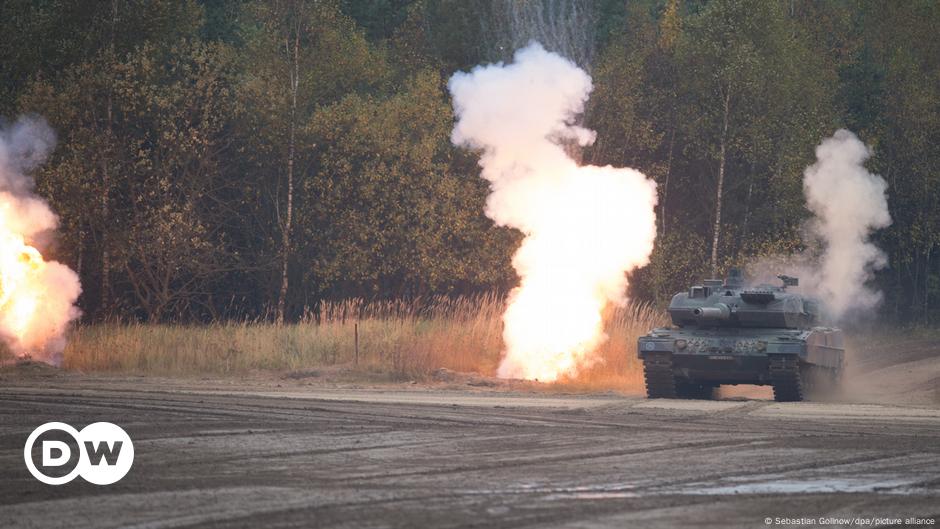Summary
A UK-based think tank warns that Europe’s increased defense spending and weapon production, spurred by Russia’s invasion of Ukraine, is undermined by a shortage of military personnel.
European NATO members now allocate over half of their defense budgets to European-made equipment, yet critical troop shortfalls persist due to decades of underinvestment.
Concerns are heightened with Donald Trump’s return to the White House, raising fears of reduced U.S. support for Ukraine.
European leaders, including France’s Emmanuel Macron, emphasize the need for Europe to become less reliant on U.S. security support.



I can’t speak for everyone, but I believe the peace time professional militaries of most democratic European countries would be dwarfed by the number of people those countries would be able to mobilise in a war time situation.
In the case of Norway, we have a standing army of some 20-30 k soldiers, with a reserve (i.e. peace time civilians with ordinary jobs that have pre-set places to meet up in the case of a conflict) of some 50-70 k soldiers. If shit hits the fan, I wouldn’t be surprised if you could get another 100-200 k to volunteer (at the peak of the cold war I believe we had standing army + reserve of some 500 k). The issue is that we are nowhere close to being able to equip that many soldiers.
That’s just Norway, one of the smallest populations in Europe, and we would likely be able to field 100 k + soldiers within a week or two, with another 100 k following up in the next months, given that we have the equipment for it.
Call me naive, but I honestly believe that people in democratic countries would be willing to enlist if there is a real threat of an autocratic regime invading at taking over. Given that we have sufficient numbers of well trained soldiers to hold out the initial weeks/months and train those mobilised, and sufficient equipment to give the mobilised, I hope that we would be able to put a solid force on its feet relatively quickly.
Also, just the sheer population of Europe (≈ 450 million in the EU) is so much larger that e.g. Russia (≈ 150 million) that we should collectively be able to field several million soldiers as long as we have enough equipment for it, and enough trained personell to train the mobilised. So I definitely think it’s reasonable to focus on building equipment stockpiles in peace time, rather than having huge standing armies.
Using the USA as a model, the federal military maintains the specialized units that don’t have a civilian use along with training the military leadership such that it can absorb a larger army.
Individual states have active reserve military units (national guard) that have both military and civilian use. For instance, a lot of disaster response activities in the USA is performed by the national guard under state control.
From that skeleton, the US military can then fill out other units in times of war.
My guess is that an EU military would follow that structure since it has been shown to work well and the union can’t rely on France to build and fund those specialty units by themselves.
That’s a lot like how other NATO countries operate as well. But my impression was that the American national guard units were professional full-time units, is that not the case?
Out Norwegian equivalent (the Home Guard) consists of civilians (i.e. people with normal jobs) that train a number of times a year, some of which have their equipment at home so that they’re ready to deploy on short notice. They have some coordinated training with the army, and are intended to function as a kind of “local force” in their region, with in-depth knowledge about local conditions that the ordinary army doesn’t have.
The National Guard functions like your Home Guard for the most part. Some states do full time deployment, but it is rare and mainly applies security tasks. States are allowed to have standing armies, but it doesn’t happen because it is usually considered a waste of tax payer money.
What I expect is that, as the Union military grows, individual European nations will stop operating militaries outside of their home guard. After all, why have a standing army for the country when you are contributing to a standing army for the Union?